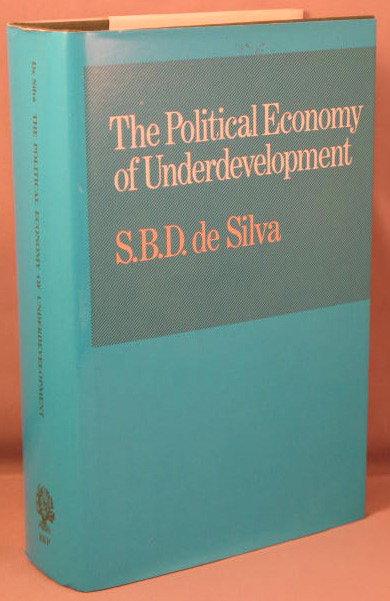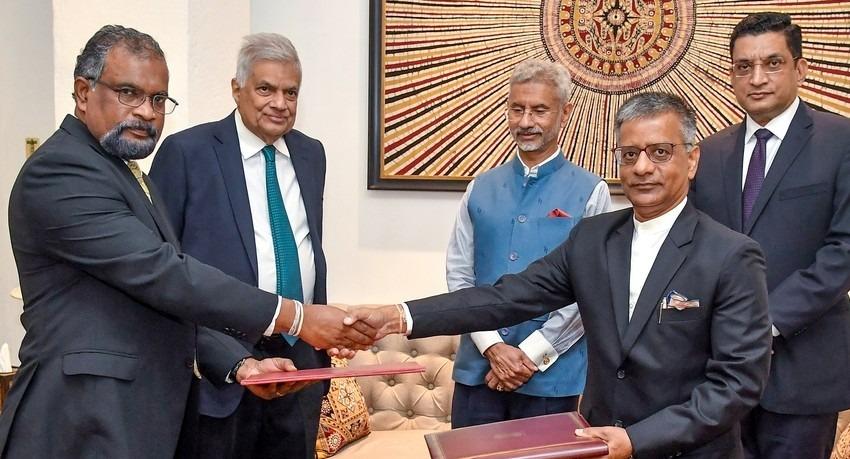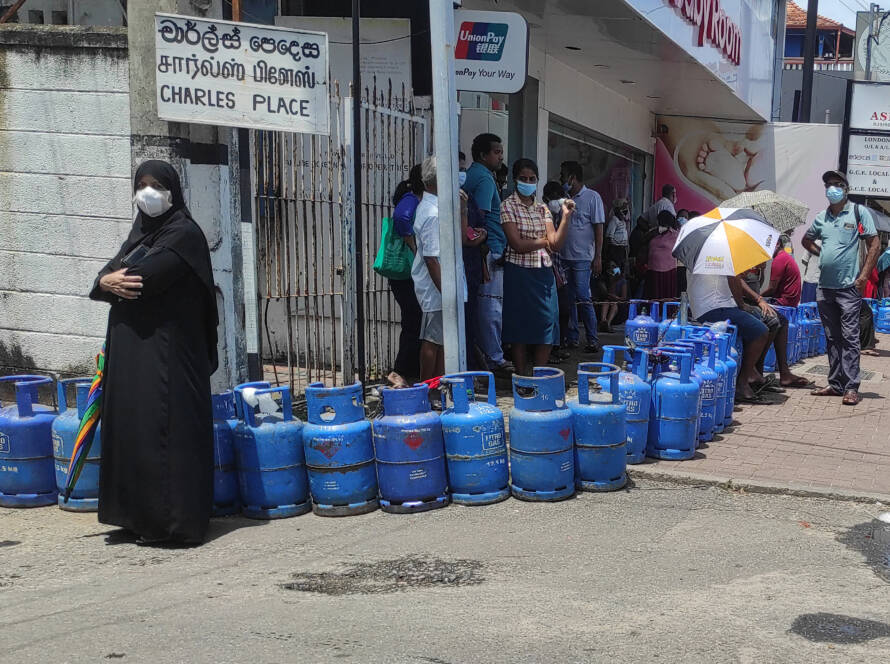
By Kanishka Goonewardena
“Capitalism is nothing if not the displacement of politics by economics.”
This provocation by Fredric Jameson, the leading Marxist critic in the US, offers a fine insight with which to aim for some clarity amidst the confusion concerning the present crisis of Sri Lanka – which the Aragalaya has revealed, but not resolved.
It is not that in capitalism there is only economics and no politics at all. But it is true that the spaces of what used to be called politics, and other important things, have increasingly been swallowed up by economics, in the course of the extensive and intensive spread of capitalism – around the world and throughout society.
As the capitalist mode of production is compelled by its own law of value to expand or perish, so too must the scope of the economy within the capitalist social totality.
Economic anthropologist Karl Polanyi said it in The Great Transformation in 1944: before capitalism became dominant, the market was embedded in society; but after capitalism became dominant, society was embedded in the market. The development of capitalism subjects even, and especially, the ruling class to market rules.
Culture is likewise now fully commodified and colonized by the economy, as shown in Jameson’s theorization of postmodernism and globalization. The fate of politics is no exception. As everyone knows, that is also a business.
What sense does it then make to blame politics for our intransigent crisis? Are we to really believe that one or two ruling families in Sri Lankan politics are primarily if not exclusively responsible for the fateful petrol lines, power cuts, and other irritations that suddenly infuriated our middle and upper classes, renowned until last year not for politics, but for minding their own businesses – just like the politicians they are now denouncing?
To address such questions, the meaning of politics must be rescued from the mystification of cliches and common sense.
Politics is not the art of the possible, and it is patently not “business as usual.” Administration and government are better words for such routine operations of statecraft, including much of what happens in liberal-democratic parliaments dedicated to the magnification of fortunes accumulated by the privileged classes. Economics would be even better.
Apt on this point would be French communist philosopher Alain Badiou’s striking formulation: “politics is rare.”
In this particular rather than the popular sense of the term, we are not speaking about preserving the status quo and profiting from it, with or without the cardinal liberal political sin called corruption.
On the contrary, politics is about making a difference: changing the world by means of organized subjective interventions into an objectively prevailing state of affairs, in order to produce radically new conditions and possibilities of life.
For the revolutionary socialist and internationalist tradition envisioned by Marx, Engels, and kindred spirits, only such politics grounded in the self-emancipating struggle of the wretched of the earth can deliver for humanity a life worth living.
If politics means people making their own history, even under hostile conditions not of their own choosing and making, then it should be clear that most Sri Lankans have long been denied precisely that vital power – in both colonial and postcolonial times, by European colonizers as much as IMF executives blessed with self-serving subservience from native elites.
Given the unholy historical alliance of local and global ruling classes, so-called national independence and attendant dreams of postcolonial development offered us no relief from hegemonic economic interests in the world.
Formal decolonization in the political realm has proven to be eminently compatible with the sustained subjection of underdeveloped countries to imperialism in the economic realm – en route to crises of both politics and economics.
I am, of course, rephrasing here the indispensable lessons of S. B. D. de Silva’s magisterial work, The Political Economy of Underdevelopment. First published in 1982, this remains the greatest scholarly accomplishment by a Sri Lankan economist.
De Silva’s 645-page treatise is required reading for anyone interested in the past and the present of the Sri Lankan economy. It not only anticipates, like no other monograph, the depth of our economic troubles in terms of underdevelopment; it also explains how neoliberal solutions to our bankrupted economy only drag us deeper into dependency and debt.
De Silva reveals the roots of our present predicament with unmatched rigor. It has to do with the fateful reformatting of colonized societies to serve the imperatives of capitalist accumulation in metropolitan countries rather than the needs of peripheral people.
This explains the persistence of the global division of labor, concentrating advanced industries in the core and backward sectors in the periphery, reinforcing relations of unequal exchange and super-exploitation between these disparate regions of the world.
In Sri Lanka, as well as many other African and Caribbean countries, it is above all the plantation system analyzed in coruscating detail by de Silva that laid the basis for what Andre Gunder Frank termed the “development of underdevelopment.”
National-bourgeois visions of modernization in the Non-Aligned world following the Bandung Conference of 1955 and aspirations of socialist development proclaimed in the Tricontinental Conference in Havana in 1966 both represented, with various degrees of radicalism and success, a fiercely contested but truly internationalist political project to liberate decolonized peoples from underdevelopment.
In the heyday of these tiers-mondiste endeavors, the essential requirement of what the exemplary Egyptian political economist Samir Amin conceived as “de-linking” – escaping from the shackles of unequal exchange and super-exploitation – was evident to all artisans and partisans of development: industrialization.
In Sri Lanka, however, the triumph of neoliberalism in the name of an “open economy” from 1977 onwards led eventually to deindustrialization, ramping up the trade deficit and sovereign debt. The fundamentally unsustainable nature of an economy premised on primary commodity exports, barely kept afloat by remittances from service sector workers in the Middle East and revenues from tourists, became apparent last year.
But what is to be done?
De Silva’s searching critique of the travails of the Sri Lankan economy debunks a few myths. Most immediately, with him as well as writers of the Marx School and the Feminist Collective for Economic Justice in Sri Lanka, we see that the euphemistically named “debt restructuring” plan prescribed by the IMF is not a solution, but part of the problem.
We also recognize that industrialization remains essential to overcoming underdevelopment, not with more “free markets”, but with strategic investments and national planning.
Above all, upon reading The Political Economy of Underdevelopment, we understand that no salvation from the woes of capitalism lies in the thought of its apologists. S. B. D. de Silva, who passed away five years ago, urges us not to trust economists peddling the ideology of neoliberalism, but to reinvent politics as a democratic-socialist force capable of negating the inhuman laws of capital and serving the interests of humanity.
Kanishka Goonewardena is Professor of Geography and Planning at the University of Toronto. He writes on urban studies, critical theory, and radical politics. He can be reached at kanishka.goonewardena@gmail.com.
Factum is an Asia Pacific-focused think tank on International Relations, Tech Cooperation, and Strategic Communications accessible via www.factum.lk.
The views expressed here are the author’s own and do not necessarily reflect the organization’s.


